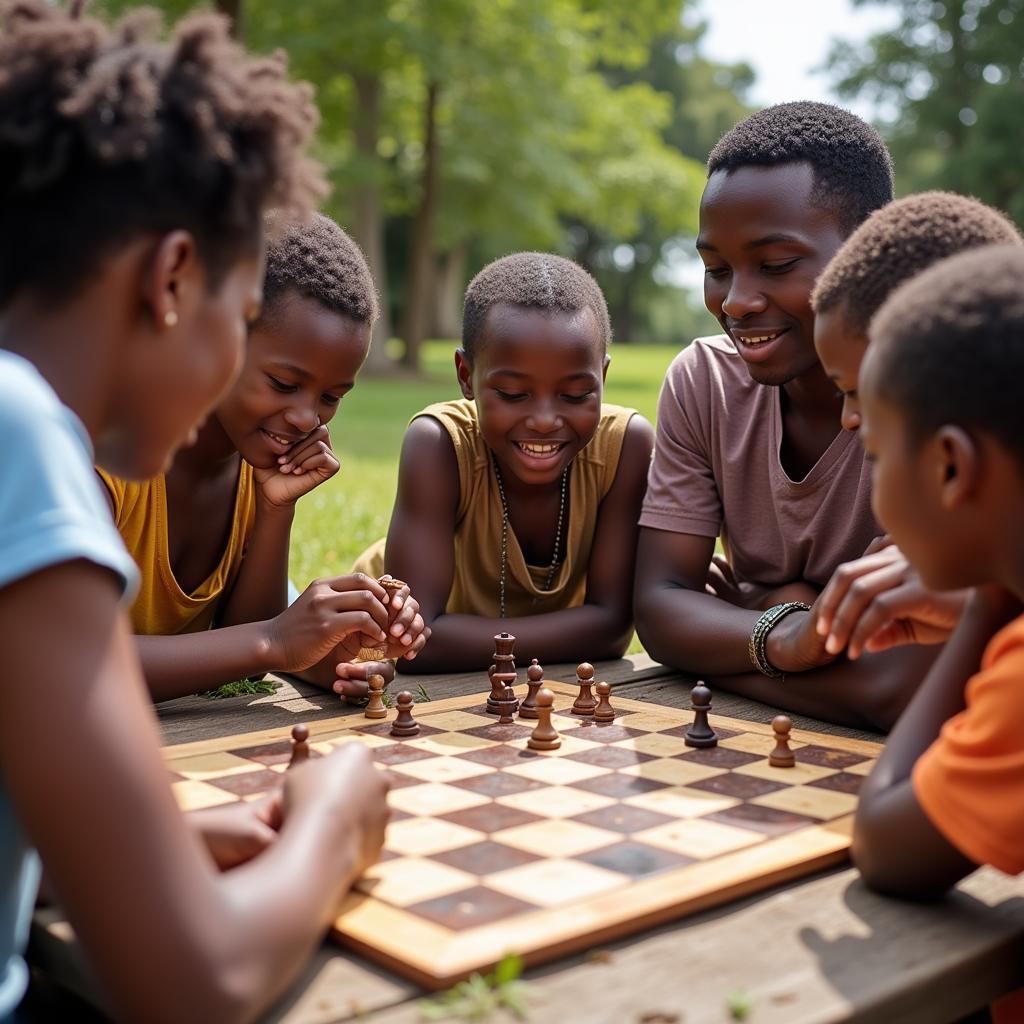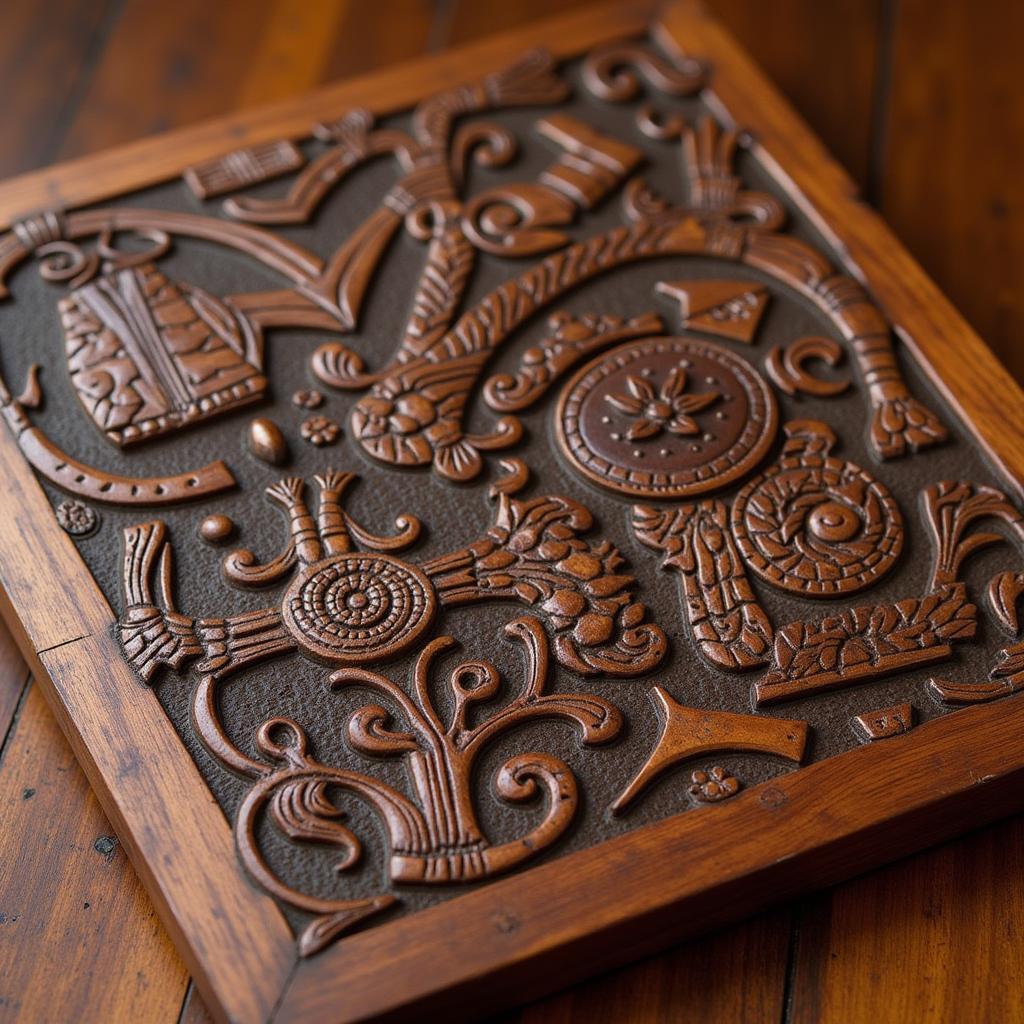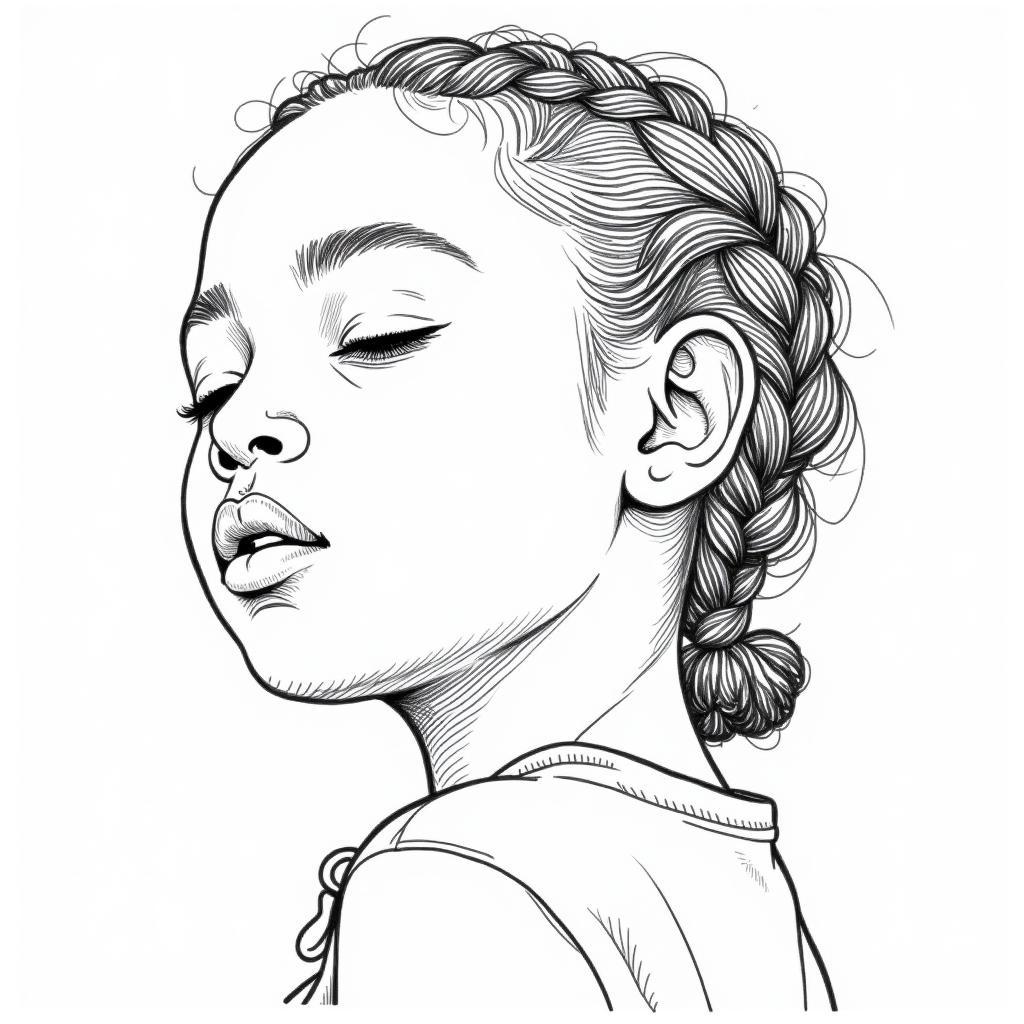Exploring the World of African Board Games
African Board Games offer a fascinating glimpse into the continent’s rich history and diverse cultures. More than just a form of entertainment, these games showcase strategic thinking, mathematical prowess, and social interaction, reflecting the values and traditions of the communities from which they originate.
A Legacy Etched in Time: The History of African Board Games
The origins of African board games can be traced back centuries, with some evidence suggesting their existence since ancient Egypt. Archaeological discoveries have unearthed game boards etched into temple walls and carved from stone, offering tangible proof of these games’ enduring appeal.
One of the most well-known examples is Senet, a game popular in ancient Egypt that involved moving pieces across a grid-like board based on the roll of dice. Senet was believed to have religious significance, symbolizing the journey of the soul in the afterlife.
 African Board Game Gathering
African Board Game Gathering
Beyond Entertainment: Cultural Significance and Social Values
African board games are much more than just a way to pass the time. They are deeply intertwined with cultural values and serve as important tools for socialization and education.
- Strategic Thinking and Problem-Solving: Many games, like Fanorona from Madagascar and Awele (also known as Mancala), require players to think several steps ahead, anticipating their opponent’s moves and developing strategic plans.
- Mathematical Reasoning: Games often involve counting, pattern recognition, and probability, fostering mathematical skills from a young age.
- Social Interaction and Community Building: Played in groups, these games encourage interaction, communication, and friendly competition, strengthening community bonds.
A Diverse Landscape: Popular African Board Games
The African continent boasts a rich tapestry of board games, each with its unique rules, strategies, and cultural significance. Here are a few examples:
- Mancala: Perhaps the most widely recognized African board game, Mancala encompasses a family of games with variations found across the continent. Players strategically move seeds or stones around a board with indented rows, aiming to capture more pieces than their opponent.
- Fanorona: Originating in Madagascar, Fanorona is a game of strategic capture played on a grid-like board. Its complex rules and intricate gameplay have earned it comparisons to chess.
- Oware: Another member of the Mancala family, Oware is popular in West Africa. It is known for its simple rules yet challenging gameplay, requiring players to carefully consider each move to outmaneuver their opponent.
 Handcrafted African Board Game
Handcrafted African Board Game
A Global Resurgence: African Board Games in the Modern World
While deeply rooted in tradition, African board games are experiencing a resurgence in popularity, captivating audiences beyond the continent. This renewed interest can be attributed to several factors:
- Growing Appreciation for Cultural Diversity: As people seek to connect with different cultures, African board games offer a unique and engaging window into diverse traditions and perspectives.
- Appeal of Strategic Gameplay: Many African board games offer intellectually stimulating experiences that challenge players of all skill levels.
- Availability and Accessibility: With the rise of online platforms and digital adaptations, these games are more accessible than ever before.
African Board Games: A Journey of Discovery
Exploring the world of African board games is an enriching experience. It is a journey that unveils the strategic brilliance, cultural richness, and social significance embedded within each game. So gather your friends and family, choose your game, and embark on a fascinating adventure into the heart of African culture.
FAQ
1. What is the oldest known African board game?
Senet, dating back to ancient Egypt, is considered one of the oldest known board games in the world, with evidence suggesting its existence as early as 3500 BC.
2. Where can I purchase African board games?
African board games are becoming increasingly popular and can be found in specialty game stores, online retailers, and even some major bookstores. You can also find handcrafted versions from African artisans.
3. Are African board games suitable for children?
Yes, many African board games are appropriate for children and can be an excellent way to teach strategic thinking, problem-solving, and math skills in a fun and engaging way.


